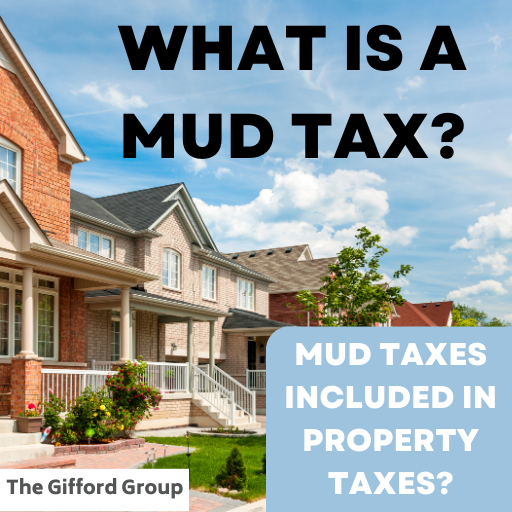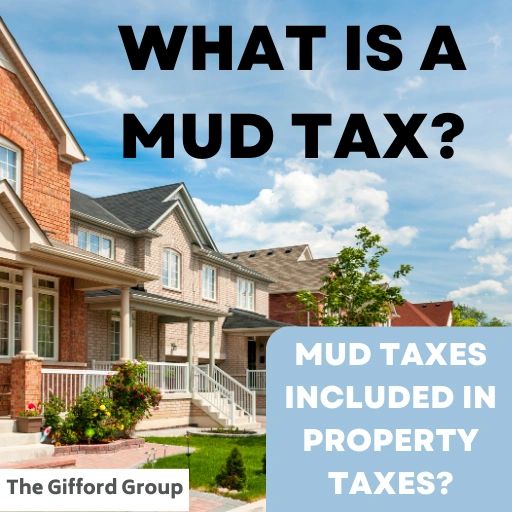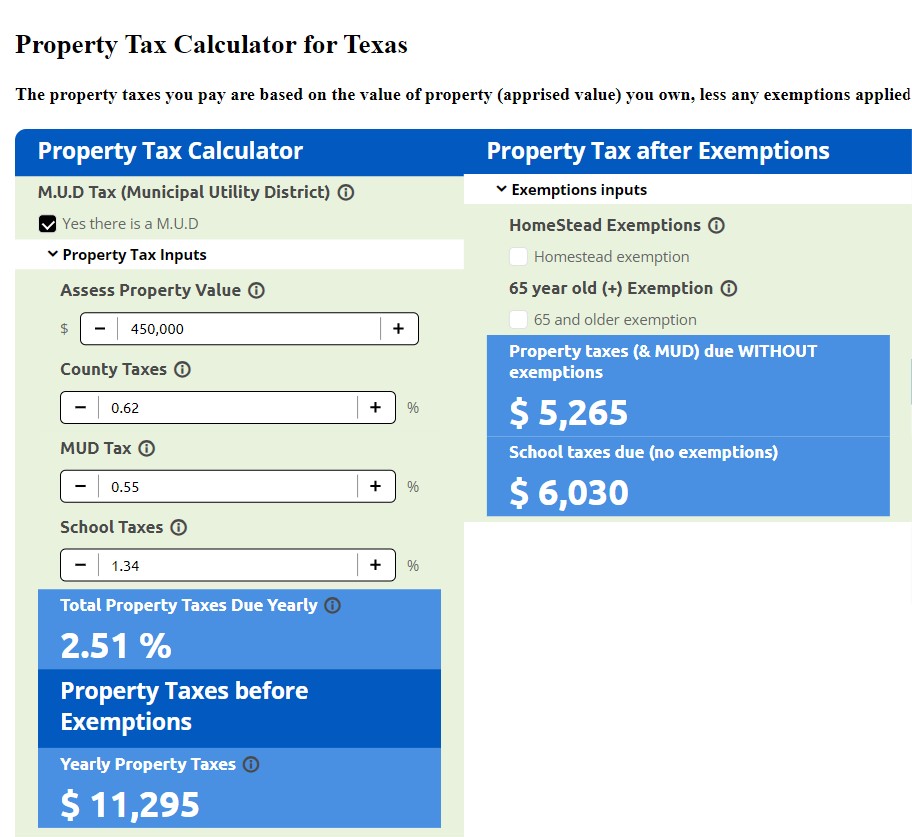What are MUD Taxes?

Understanding Texas Municipal Utility District Taxes: A Comprehensive Guide to MUD Taxes
Read the whole blog post here https://thegiffordgroup.net/new-beginnings-blog/f/what-is-a-mud-tax-are-mud-taxes-included-in-property-taxes
What is a Municipal Utility District?
A Municipal Utility District (MUD) is a local governmental entity created by the State of Texas to provide essential public utilities and services to specific communities within its boundaries. These utilities typically include water, wastewater, drainage, and in some cases, parks and recreational facilities. MUDs are usually established in undeveloped areas that lack access to municipal services.
How are MUDs Created?
MUDs are created through a process involving several steps, including a petition, election, and approval by the Texas Commission on Environmental Quality (TCEQ). The creation of a MUD requires support from the residents in the proposed district and undergoes a thorough examination to ensure feasibility and compliance with regulations.
Read about the New 100,000 Homestead exemption.
The Role and Responsibilities of MUDs
Once established, MUDs are responsible for providing and maintaining public utilities and services within their boundaries. This includes the construction and maintenance of infrastructure such as water treatment plants, wastewater facilities, stormwater management systems, and recreational amenities.
The TCEQ is responsible for general supervision and oversight of water districts, including:
- Monitoring water district activities and their compliance with state laws.
- Providing information to district customers, consultants, board members, and employees.
- Reviewing applications and petitions for appointment to district boards.
- Reviewing the issuance of bonds that finance certain district infrastructure.
Check out this MUD MAP in Texas.
MUD Tax Collection and Allocation
MUD taxes are collected by the county tax assessor-collector, who then allocates the funds to the respective MUDs. These funds are used to cover operational expenses, debt service payments, infrastructure maintenance, and other costs associated with providing public utilities and services.
MUDS are funded through bonds, or investments, made by the State of Texas and paid to the MUD to create the necessary infrastructure to provide water and sewer services to residents. Those bonds are paid off as the MUD collects taxes from residents of the community.
This is known as a MUD tax and is part of the homeowner's property taxes. MUD District Websites: Many MUD districts have their own websites, which may include information about tax rates. Visit the websites of the specific MUDs you are interested in to check for any available data on average MUD tax rates.
How to Calculate Property Tax in Texas?
MUD Tax Exemptions and Limitations
Certain properties may be eligible for exemptions or limitations on MUD taxes. Homestead exemptions, disabled veteran exemptions, and other exemptions provided by the state or local authorities can help reduce the tax burden for eligible individuals.
Municipal Utility Districts (MUDs) have the option to offer exemptions of up to 20% of the property value, although it is not mandatory by law. As a result, exemption policies can vary among different counties. In cases where exemptions are provided, they must be a minimum of $5,000 off the assessed value of the home. Additionally, MUDs may offer an additional $3,000 off for seniors.
RESIDENCE HOMESTEAD EXEMPTION FREQUENTLY ASKED QUESTIONS
Pros and Cons of MUD Taxes
MUD taxes have both advantages and disadvantages. On the positive side, they enable the provision of essential utilities and services to areas that might not otherwise have access. However, the tax burden on property owners and the potential for rising rates should be considered as potential downsides.
MUD taxes should be paid down over 20-40 years and should be a lower burden as the year pass and more homes are included as more homes are built.
Katy/Fulshear/Brookshire Area MUD District Links
See our Youtube about Property taxes.
We recommend working with a professional appraiser, real estate agent, and attorney to ensure a successful transaction.
We have Houston Real Estate Covered! HOME SELLER'S GUIDE
https://thegiffordgroup.net/home-buyers-guide
Real Estate is our specialty! https://thegiffordgroup.net/find-a-new-home
Realtors That Provide Compassion and Guidance For all Your Needs We work hand-in-hand with clients to help ease stressful real estate transitions.
https://thegiffordgroup.net/tomball-homes
https://thegiffordgroup.net/missouri-city-homes
https://thegiffordgroup.net/cypress-homes
https://thegiffordgroup.net/fulshear-homes
https://thegiffordgroup.net/richmond-homes
https://thegiffordgroup.net/sugarland-homes
https://thegiffordgroup.net/the-woodlands-homes
https://homes.thegiffordgroup.net/i/New-construction
https://thegiffordgroup.net/55-plus-communities-homes
https://thegiffordgroup.net/dream-homes
The Gifford Group: https://thegiffordgroup.net
We have Houston Real Estate Covered!




